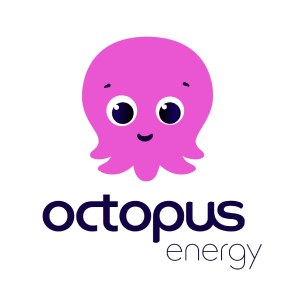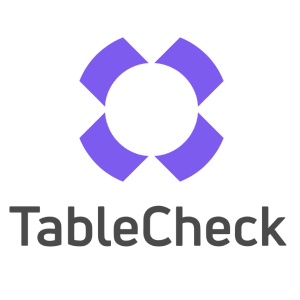Updated April 4, 2025
Tech Companies with "Sick Leave" in Japan: 2025 Guide
Everyone deserves to take time off.
Be it for vacation or for no reason at all, you deserve to let go and relax every once in a while. Working is tiresome, and it doesn’t just take a toll on your body but on your mind as well. As a full-time employee, it’s only natural that you want to stare at the wall and donothing sometimes.
Luckily, that’s what paid vacations are for. As an employee, you usually get a set amount of paid time off (PTO) days annually that you can use up whenever you need it. If you happen to get sick, you get additional days so that you don’t use up your vacation days.
At least, that’s the case in Europe and in the United States.
However, in Japan, you might want to be more careful when using up your vacation days. As opposed to what you might be used to, it’s not customary for companies to provide sick days in addition to your paid time off days.
Luckily, things are changing in the tech world. Companies that provide sick days do exist, and I’m here to tell you all about them.
In this post, I’ll give you a few good examples of Japanese tech companies with sick leave. I’ll also give you a brief introduction to the time-off system in Japan. Let’s begin with the latter.
In this article: 📝
The Time-Off System in Japan
Normally, you get at least 10 vacation days in your first year on the job in Japan.
This is pretty standard, as it’s what the Japanese Labor Standards Law stipulates as the minimum amount, but that’s only for the first year.
As you keep working at the same company, your vacation days will automatically increase each year until they reach a maximum of 20, which takes 6 and a half years.
However, as I said, this number is the minimum amount stipulated by the law to protect employees’ rights. Some companies can provide more than that, and in the tech world, they usually do.
That’s not all, though.
On top of your paid time off days, it’s also customary in Japan to provide a few extra vacation days at the end of the year and in summer. Additionally, you almost always get 2 days off weekly as unpaid weekend vacation.
Yes, you read that correctly.
In Japan, employers are only required to give one day off per week by law, but it’s quite customary to have both Saturday and Sunday off because weekends are seen as “family time.”
This is why the weekend is considered “unpaid vacation days” in Japan, so don’t be surprised when a job listing presents weekends as “additional time off.”
What About Sick Leave?

While this is all good and well, however, you don’t get extra days for sick leave. This means that you’ll have to ration your precious PTO days and save a few of them for when you unexpectedly fall sick or use the weekends to rest up.
Luckily, as tech firms tend to offer more vacation days in general, some also provide additional days specifically for sick leave. I’ll introduce some of these companies in a bit and give you a rundown of their time-off perks.
However, if you’re curious about the vacation days and the time-off system in Japan, you might also want to check out my other post. I explained national holidays in Japan in addition to paid time off and sick days in more detail.
Now, let’s take a look at some of the best Japanese tech companies with sick leave.
LY Corporation
Established in 1996, LY Corporation is a Tokyo-based company specializing in IT consulting and digital solutions. The company offers a wide range of services, including system development, cloud integration, and IT infrastructure management, helping clients across various industries enhance their technological capabilities.
LY Corporation provides special paid leave for employees diagnosed with infectious diseases such as COVID-19 and influenza. Thanks to this policy, staff members who become incapacitated due to illness can focus on recovery without having to use up their standard paid time off.
Additionally, the company offers flexible working arrangements, including remote work options, to support a healthy work-life balance.
THECOO
Founded in 2014, THECOO is a Tokyo-based company that operates fan community platforms, connecting influencers and their supporters. The company’s services enable content creators to engage more deeply with their audiences, offering exclusive content and experiences to enhance fan loyalty.
While specific details about THECOO’s sick leave policies are not publicly disclosed, they've earned recognition for cultivating a particularly supportive workplace environment with a strong commitment to employee wellbeing. This commitment extends beyond traditional Japanese work practices.
The company offers a comprehensive benefits package, reflecting its employee-centered approach. This includes dedicated sick leave separate from regular paid time off, generous maternity and paternity leave options, and extended New Year holidays from December 29 to January 3.
SIVA
Established in 2016, SIVA is a Tokyo-based company that runs an online platform to help businesses manage their digital marketing efforts. Their product, “Squad Beyond,” supports companies’ long-term success by visualizing and streamlining resources and their traceability, starting from production and operation.
SIVA offers unlimited, paid leave to its employees, allowing team members to take time off as needed with appropriate advance notice. This progressive approach eliminates the need for designated sick leave—employees simply manage their own balance between work responsibilities and personal needs, including health concerns.
The company observes all Japanese public holidays while fostering a workplace culture that genuinely supports employee wellbeing, recognizing that flexibility leads to higher productivity and satisfaction.
Heartcore
Founded in 2009, Heartcore is a Tokyo-based company that operates Japan’s leading Content Management System (CSM). The company provides various solutions supporting digital transformation, including customer, experience management, and process mining.
Heartcore approaches the concept of sick leave a little differently. The company offers 10 days of paid leave and an additional five days of refreshment leave. These additional refreshment leave days can be used for recovery from sickness, vacation time, or simply handling personal matters, giving employees greater autonomy.
Treasure Data
Established in 2011, Treasure Data is a global enterprise customer data platform (CDP) that helps businesses harness and analyze customer data to make informed decisions. Their platform seamlessly integrates information from diverse sources, enabling companies to deliver highly personalized customer experiences.
Treasure Data offers one of the more generous leave packages among tech companies in Japan, providing 20 days of annual paid leave plus six additional days of year-end and holiday leave. The company further enhances this package with seven dedicated days of medical leave specifically for recovery from illnesses or medical procedures, creating a comprehensive employee benefits system that prioritizes health.
PayPay
PayPay is a fintech startup that launched in 2018 and found great success in Japan. The company is Tokyo-based and provides online payment solutions to companies and consumers. Currently, with over 38 million users, PayPay is the most popular payment app in Japan.
PayPay provides additional sick days to its employees on top of the standard paid time off they offer.
In addition, the company also provides parental (maternity and paternity) leave and a 5-day-long year’s end holiday between December 29th and January 4th as well.
If you get married and want to take time off or if a loved one dies and you have to attend a funeral, PayPay also provides additional congratulatory leave and condolence leave so that you don’t use up your paid vacation days.
Mercari
Mercari is the largest consumer-to-consumer marketplace in Japan, but that’s not all. The company is also Japan’s first unicorn startup (a private company with a valuation of over 1 billion USD). You can check out my post on Startups in Japan to find out more about unicorn startups.
Established in 2013, Mercari provides a marketplace to consumers who wish to sell or buy used items. As one of the most successful startups in the country, Mercari is no short of time-off perks, either.
The company is rather generous with its time-off practices, as they offer separate leave days for almost every occasion. In addition to your standard 10 days of paid time off (in the first year), you get an additional 10 days of sick leave annually.
Moreover, Mercari provides “relax days,” which are 3 extra days you can take whenever you want throughout the year to recharge your batteries. In addition to all of this, the company also provides congratulatory leave and condolence leave, as well as parental leave for childbirth.

Autify
Autify is a San Francisco-based startup that was launched in 2019. The company provides AI-powered automation software for software testing, and it’s now one of the most successful startups in the country. Autify is currently used by over 300 companies.
Like the other companies I’ve introduced so far, Autify also provides 10 days of paid time off in the first year, which increases by one day each year you work there.
The company also provides an additional 5 days of sick leave, and you also get national holidays and weekends off.
Moneytree
Moneytree is a Tokyo-based fintech startup that was established in 2012. The company offers financial data analysis and other accounting services to businesses, as well as a personal finance app to consumers.
Moneytree is also among the companies that are generous with their time off perks. The company offers a whopping 20 days of paid time off (in addition to national holidays and weekends) in the first year, which is double the minimum amount stipulated by law.
However, the best thing that sets Moneytree apart is its sick leave policy. In addition to the already generous paid time off, the company also offers 10 additional days of sick leave, which is pretty much unheard of in Japan.
Get Job Alerts
Sign up for our newsletter to get hand-picked tech jobs in Japan – straight to your inbox.









